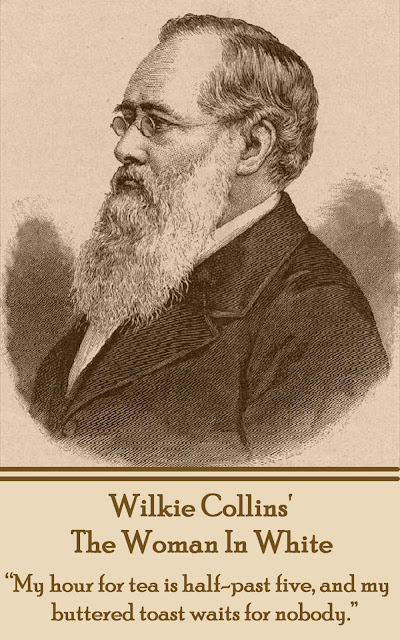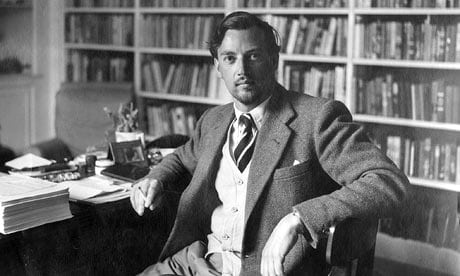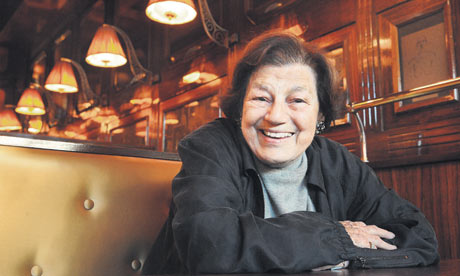A couple of months ago Mavis Gallant had a dream. A messenger came to the door carrying a cardboard box with a lid on it. On top was written "Mavis Gallant" in big letters – and underneath it "Bad Prose". "I was devastated. Devastated for days. I thought, they aren't telling me the truth."
In fact, Gallant is often cited as one of the best living short-story writers, inspiring reverence among devotees of the form, such as Jhumpa Lahiri, who credits her as the most significant influence on her own writing. At the age of 15 Gallant told a friend – who reminded her of it many years later – that when she grew up she would live in Paris and be published in the New Yorker. Next year she will have spent 6o years in her adoptive city and has had nearly as many stories in the magazine as John Updike.
"They were all in a strange land and out of context," one of the characters reflects in Green Water, Green Sky, Gallant's first (of only two) novels, written in 1959. A Canadian in Paris who has devoted her life to writing, she is one of the great chroniclers of exile, her fictional landscapes inhabited by misfits and lost souls, characters far from home, literally or emotionally. Reading too many of her stories at one time leaves the reader feeling strangely adrift, the world slightly askance. She has travelled extensively, usually alone, across Europe. "Only personal independence matters," she once wrote, quoting Boris Pasternak, and this might well be her motto.
We meet in Le Dôme, a notorious hangout for writers and artists in bohemian Montparnasse and long a favourite with Gallant, who lives what used to be for her just a nip around the corner, but is now – due to increasing frailty – a short taxi ride away. She first came to the restaurant when she arrived from Montreal in 1950. "It was a terrible winter and I used to come here because it was warm and I didn't have any electricity in my apartment. Can you imagine – the French giving anything away free!" she says, her handsome face crumpled by a chuckle. Now 87, she is a famous regular herself; the only time she is unable to secure her own spot – the cosy "Picasso booth" – is when Paloma, the artist's daughter, is in town.
"I have lived in writing, like a spoonful of water in a river," she writes in the introduction to her Selected Stories. Indeed, the life and work seem almost indistinguishable: she speaks in a succession of stories, as effortlessly as bubbles blown through a loop, smaller tales attached to larger ones. She is pin sharp: if you aren't careful, and push for direct answers, the stories burst in your face. Her osteoporosis is forgotten (sitting for long periods, and even writing, are painful) as figures from her past, or characters from her fiction – both seemingly as real to her as each other – are recollected and reanimated. She recalls how, reading one of her stories, "The End of the World", to a group of bored schoolchildren, she started to cry because she had forgotten the ending and suddenly realised one of the characters was going to die – and her eyes, just a minute before creased with laughter, fill with tears across the table. "I could only stop myself by saying: 'It's only a story, pull yourself together.'"
Gallant's life seems richer in stories than most. She made the first of her "escapes" when she was 18, turning up on the doorstep of her old nurse in her childhood city of Montreal, leaving her mother in New York. An only child, she was shunted between a bewildering number of boarding schools. When she was 10 her father, an amateur artist, died, and her mother's remarriage left her feeling abandoned. This unhappy childhood seeps like a stain throughout her fiction in the recurring neglected children and strained filial relationships – "You have to observe it and overcome it," she says now.
When she was 21, she got a job on the English-language weekly, the Standard, "dead and buried now", only, she says, because all the men were at war. One of the highlights was interviewing Sartre, and she promised herself that one day young people would come to interview her. Journalism was her "apprenticeship", and while she enjoyed thinking up features ideas, occasionally getting into trouble for her outspoken views and chafing against the orthodoxy of the Catholic Church, after six years she handed in her notice. "I liked the life, but it wasn't the life I wanted." She felt she couldn't go on living in her native city, and she chose Paris because of "the black and white films, the paintings. I thought that France must be enchanted magic. I wanted to be among those people."
She was 28 and already divorced (she had briefly married a musician called John Gallant) with one story accepted by the New Yorker. She gave herself two years, vowing that if she could not live on her writing, "I should destroy every scrap, every trace, every notebook and live some other way. Whatever happened, I would not enter my 30s as a journalist – or anything else – with stories piling up in a picnic hamper." In a fateful episode, this was very nearly prophetic. Gallant was living in Spain at this time, sending stories to her agent in New York. "I admire you very much," he wrote back. "But the New Yorker have rejected your work." She was "dead broke and desperate". Cold and hungry, she took refuge in the American library in Madrid, where she came across one of her stories in an old copy of the New Yorker. She wrote to the fiction editor, William Maxwell, to reproach him, not because she hadn't received any payment, but for not sending her proofs. He replied to say her agent had told them she lived in Capri and to write to the General Post Office there as she didn't want to be disturbed. "It was a terrible thing to do to a young writer," she says. She later heard that the rogue ("the naughty agent" as she calls him now) had been killed in a car crash.
It was, however, the beginning of a long and fertile relationship with the legendary Bill Maxwell, to whom, she writes in the introduction to theSelected Stories, she owes everything. Gallant can – and does – count on one hand the stories among her prodigious output that were not published in the New Yorker. After he retired Maxwell reread all his writers' work, including Gallant's, and he wrote to her apologising for not running in full the novella The Pegnitz Junction, which she still considers to be her finest work. "He wrote 'my mind must have been out for lunch.' What editor would do that?"
One of the most striking things about Gallant's work, including The Pegnitz Junction, is its cinematic quality, shifting perspectives and chronology, resulting in what Lahiri calls "narrative that refuses to sit still". Gallant is dismissive of analysing or explaining her work, and distrustful of academic attempts to do so. "If I thought about what I do, I think I'd stop writing. Really," she says with feeling. "I would tell you if I knew. It just happens." For her "the first flash of fiction is like a curtain going up on stage, and you wait to see what's happening. The characters aren't speaking to me, exactly, but I get lines of dialogue. I know who they are, what they do and what they are saying to each other. And I know more than they do, because I know about all of them."
The characters also come with names, like photos with captions underneath, which can cause problems: Florence in Green Water, Green Sky, is schizophrenic, and in Gallant's mind was originally called Caroline, the name of her goddaughter. "But I had to finish the novel with her name because I couldn't have written it otherwise." Brief, intense and technically dazzling, Green Water, Green Sky was conceived and is published as a novel, but Gallant wasn't satisfied. "I felt there were only four important things – so I broke the novel into four stories." (The New Yorker ran the first three, declining the last because it can't be understood in isolation.) Her only other novel, A Fairly Good Time, is out of print. Has she, like other writers committed to the short form (Alice Munro, for example), felt under pressure to write a novel? She sinks her head in her hands with a dramatic groan. "Publishers send me so many new novels – I hardly dare answer the postman. A lot of it is just stuffing between the important things. In between is nothing."
For a year in the early 80s, she was writer in residence at the University of Toronto, "a completely useless job. You are with people who have no talent whatever, and if they had they wouldn't come to me." The only good thing was that she had 20 per cent off at the campus book store. To those students who showed any promise she would give copies of Nabokov, or EM Forster, "always good for the soul". Otherwise, she would give them Raymond Carver.
Despite the inexorable popularity of the short story on creative writing courses, she thinks teaching fiction is a "dead loss. I never asked for help. I didn't even show my friends what I was doing." She has only two words of advice for aspiring short story writers: read Chekhov! "Anybody who has the English language and doesn't read the wonderful translations of Chekhov is an idiot." She also admires Eudora Welty, Marguerite Yourcenar and Elizabeth Bowen, although she was disappointed to read Bowen's letters to her lover Charles Ritchie, whom Gallant knew. "She turns out to be a snob. It is a division in the brain, between what one is as a writer and what one is as a person."
The structural mastery of her stories, coupled with their fluid morality – you are not entirely sure, which, if any, of the characters, deserve sympathy (well-intentioned "liberals" come in for a particularly hard time) – has led to accusations of emotional coldness. In the New York Review of Books in 1980 – in which Gallant was reviewed alongside the "arresting new talent" in English fiction, Ian McEwan – VS Pritchett found her "brittle". While Pritchett concluded that, despite her "sharp", "clever" comedy, "Miss Gallant has compassion", John McGahern, writing in the New York Times more than a decade later, complained that her "witty, controlled prose is functioning at the expense of her characters". "I don't sit weeping as I write," she retorts impatiently.
On a more positive note, she recalls a review by John Updike, in which he wrote that she doesn't "belittle men, that she seems to really like men". Indeed, her chat is scattered with recollections of flirtatious exchanges, as light and colourful as confetti: giving bothersome Italians the slip by vanishing into art galleries; going gambling in Monte Carlo; even being asked out to dinner over the coffin at a funeral by the brother of a Jewish poet who had killed himself. But a committed reader of Gallant's fiction might be forgiven for asking if she believes in love. "Oh yes! Oh of course. I don't say that it will last 50 years. I never intended to marry. I fell in love!" Was she ever tempted to remarry? "No."
But that doesn't mean she was always alone. Just as in her 20s she gave herself two years to prove she could be a writer, so in her 30s she promised that she would give herself two years to see if she could live with someone else. She left almost on the day. "I went to stay on a farm outside Salzburg and every morning I woke up and thought 'I'm free.'" She hardly wrote at all during the two years. "You have to stop and think – 'Oh I must get the bread for supper' – I didn't even eat bread because I didn't want to get fat! I didn't like being half a person with half of another person attached. It wasn't his fault, he didn't do anything wrong, anything mean or nasty. As a couple you only ever see other couples. It was so boring, I was so bored," she says with feeling. "I was going out like a light. But if everyone was like me the human race would run out."
Although she writes about children with beguiling empathy, she knew she never wanted to have any of her own. To illustrate the point, she tells another story. After lunch with a lawyer friend on a trip to Montreal in 1955, he drove her back and stopped in front of "a very charming looking house with vines growing up it. 'I'd love a house like that,' he said. And I said, 'It's not for me.' Saying, 'How was your school day?' every evening . . . I'd run away. I felt that the only thing I was on earth to do was to write."
Which for the next few decades was all she did. But it wasn't until the 60s that she feels she fully developed her own style. Gallant has been rereading her work from this period for a new collection of her early and uncollected stories, published by Bloomsbury in the UK this month asThe Cost of Living. It opens with "Madeline's Birthday", the very first story accepted by the New Yorker. Ironically, today when being Canadian seems almost to be a criterion for the job description of short story writer, Gallant was only the second Canadian to be published in America's most prestigious magazine and feels her nationality was a "handicap." "To them I was like an Eskimo with talent. A hick. They were surprised when they got 'Madeline's Birthday', which takes place outside New York."
Three of these early stories were turned down by the New Yorker because they were considered "inauthentic". This early rejection has continued to haunt her, feeding her fear that she might have "inherited a flawed legacy", like her artistic father, afflicted with "a vocation without the competence to sustain it". When the collection was published last year by the book imprint of the New York Review of Books, she "nearly fainted for joy", when the editor told her that one of the rejected stories is "authentic even for New York even now". "I had put those stories out of my mind. I took their word for it that they were no good. But I did know what I was doing. I did know what I was talking about. And the stories work."
She is very proud that her fiction is firmly rooted in the time in which it was written, and it was at her insistence that the Selected Stories are chronologically ordered and dated. It wasn't, she says, until the Selected Stories were published, and received such positive reviews, that she really felt able to relax. "I felt like Queen Alexandra – when she said 'They do like me'."
But then there's that dream, she remembers sorrowfully – even in a year when she's had seven books published (reissues in different languages). The Spanish edition of the Selected Stories is particularly pleasing to her. It took the translator two years, and because Spanish sentences are longer, it is even fatter than the English edition squatting unignorably on the table between us. In a strange echo of her nightmare, of which Gallant herself seems unaware, she recalls its arrival: "I had forgotten even signing the contract. The messenger delivered it. It had Mavis Gallant on it" – and not, of course, a word about bad prose. "It is divine", she says. Perhaps she can finally lay those doubts to rest.
DRAGON
RIMBAUD
DE OTROS MUNDOS
CUENTOS

















